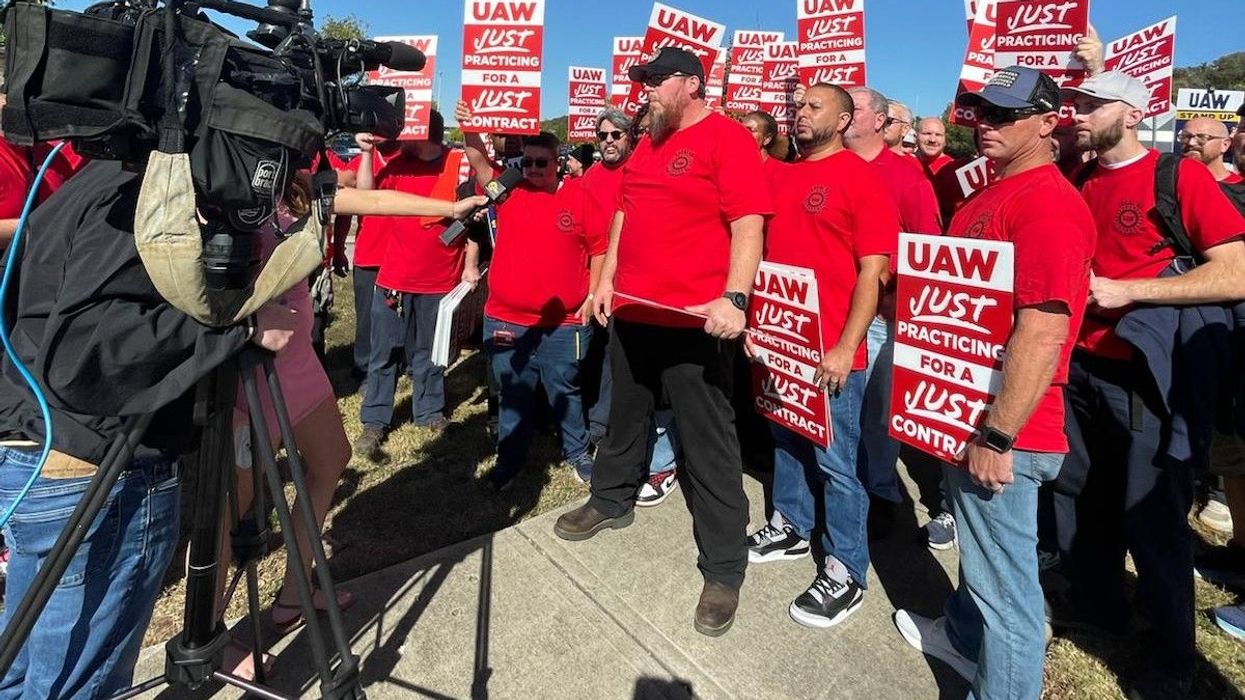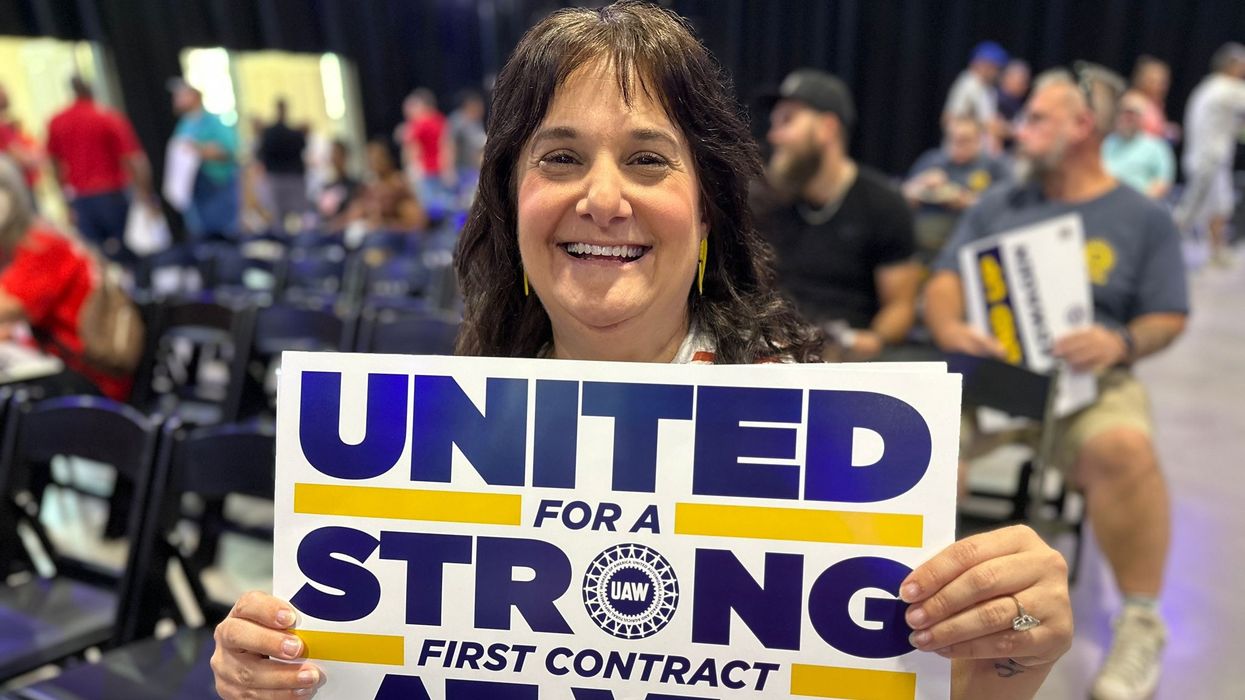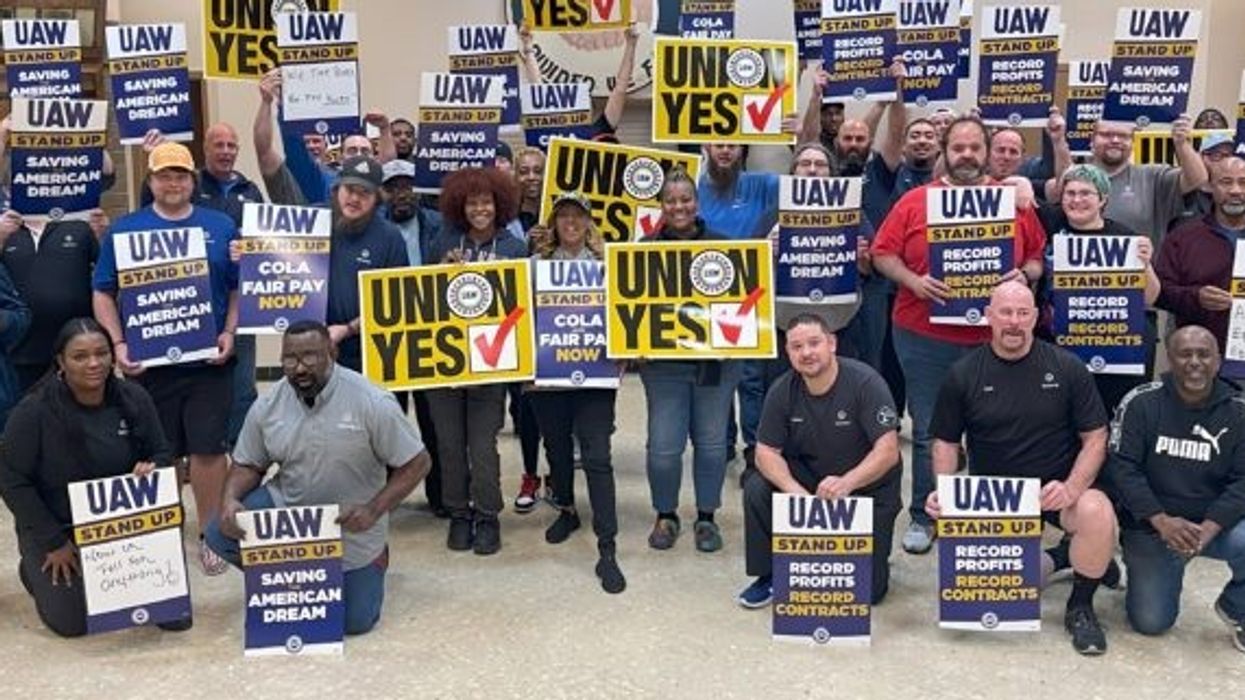"Just a few months ago, you voted 3-1 to join the UAW," the union's president Shawn Fain told the assembled workers, adding, "You had faith, and you moved mountains, you overcame opposition, and you won your union."
"With the kinds of profits you're generating, Volkswagen could double your wages, not raise prices, and still make billions of dollars. It's a choice."
At a rally that began at 1:30 pm Eastern Time on Sunday, Fain told gathered workers that they were now ready for the "next step."
"We tell Volkswagen, get out your pens, because it's time to put it down in writing," Fain said.
Heading into negotiations, the UAW is set to make several demands of Volkswagen, among them improved health and safety; competitive wages including cost of living allowances, profit sharing, and no tiers; improved paid-time-off policies; more retirement security; affordable healthcare; and union protections such as due process, union representation, paid time for union work, job training, and fair promotion policies.
Fain warned the workers that the company and the corporate media would try to fearmonger about the union's demands.
"They're going to say that our righteous fight for a high quality of life for the working class will wreck the economy or derail the transition to EV," Fain said, adding, "The only economy that's going to get wrecked in this is their economy that only works for the rich and the corporate class."
Fain shared figures showing that Volkswagen had increased its profits since 2021 by 49% compared with the previous three years, securing $24 billion in profits in 2023 alone. But instead of sharing that windfall equitably with the workforce and the local economy, it paid CEO Oliver Blume $10.5 million and wealthy shareholders $12.7 billion. Shareholders have seen their dividends jump by 288% in two years.
"That's billions of dollars that have been robbed from the workers who generated those profits," Fain said. "It's billions of dollars that weren't spent on the EV transition. It's billions of dollars being spent on mansions in faraway countries and yachts in private marinas, and not being spent in the local businesses right here in Tennessee."
At the same time, workers at the Chattanooga plant had produced more than 1.5 million vehicles for over $50 billion in sales since 2011.
"You're the backbone of this plant, you're the backbone of this company, and you deserve your fair share of the wealth that you create," Fain said, adding, "With the kinds of profits you're generating, Volkswagen could double your wages, not raise prices, and still make billions of dollars. It's a choice."
Ultimately, Fain said the figures he cited had one cause: "corporate greed."
Fain noted that the Chattanooga workers were entering negotiations for their first union contract roughly one year after UAW workers at the Big Three car makers launched their historic "stand up strike, ultimately winning record-breaking contracts from General Motors, Ford, and Stellantis.
"Since that moment, workers everywhere including here at Volkswagen are standing up to fight corporate greed and demand your fair share in the economy," Fain said.
He told the Chattanooga workers, "Now is your time to win a record contract and make history again."




